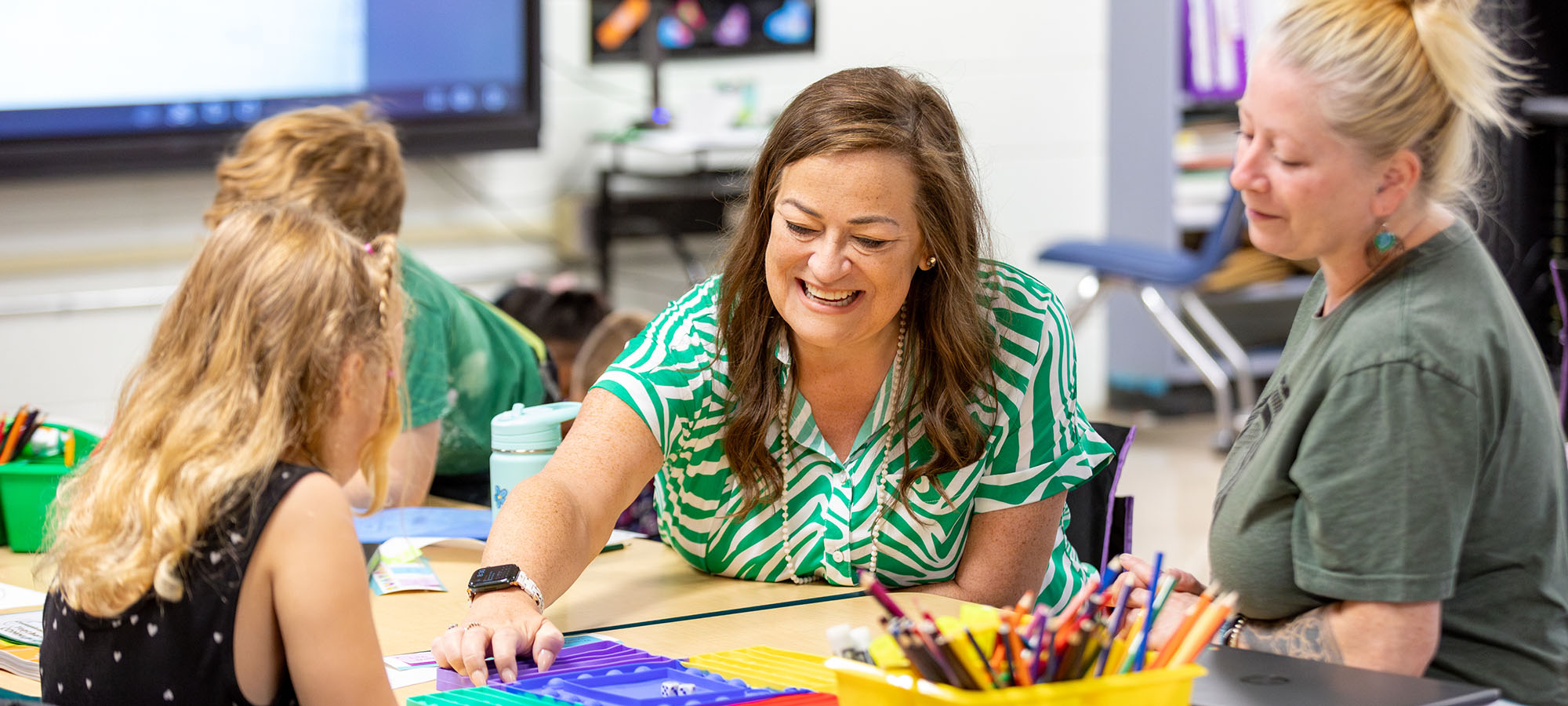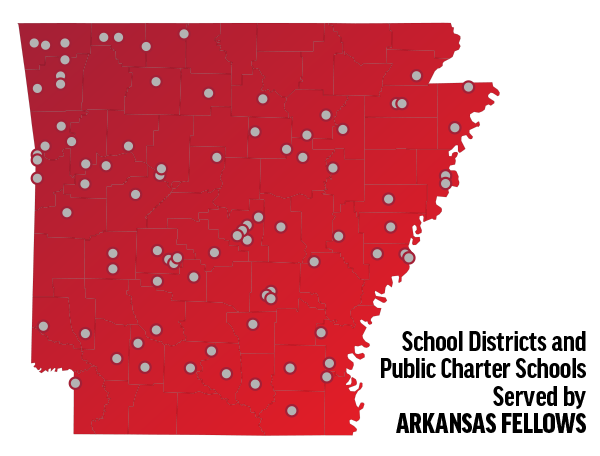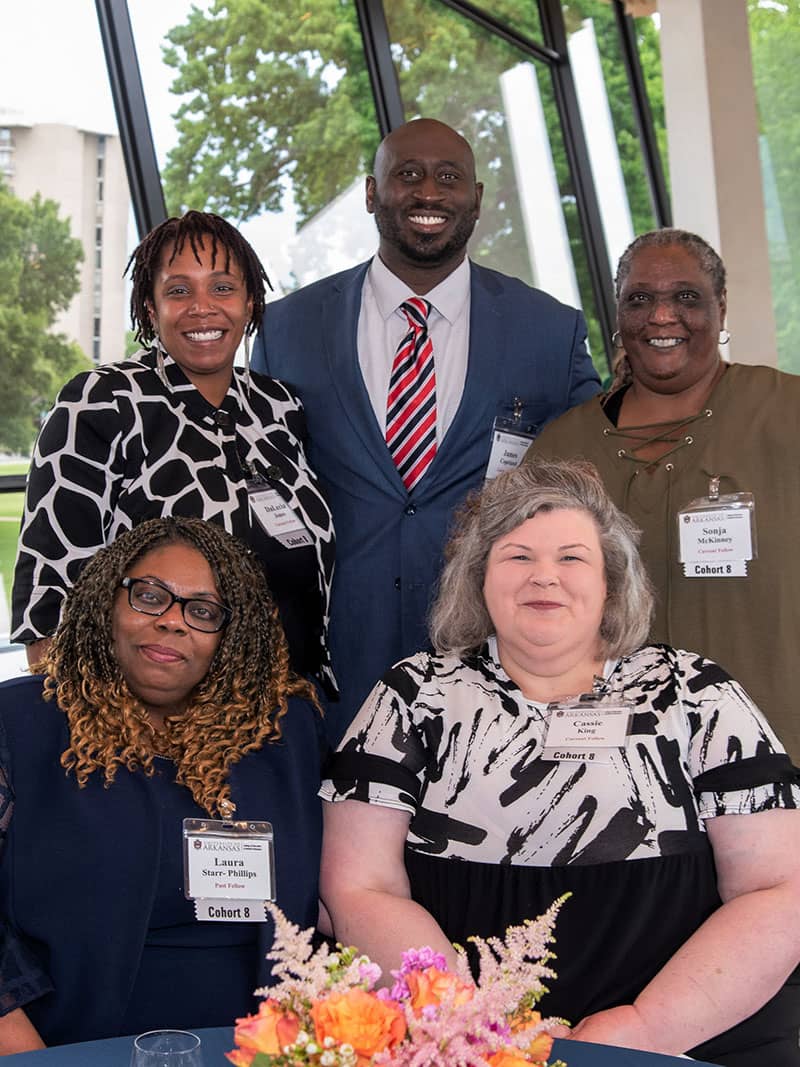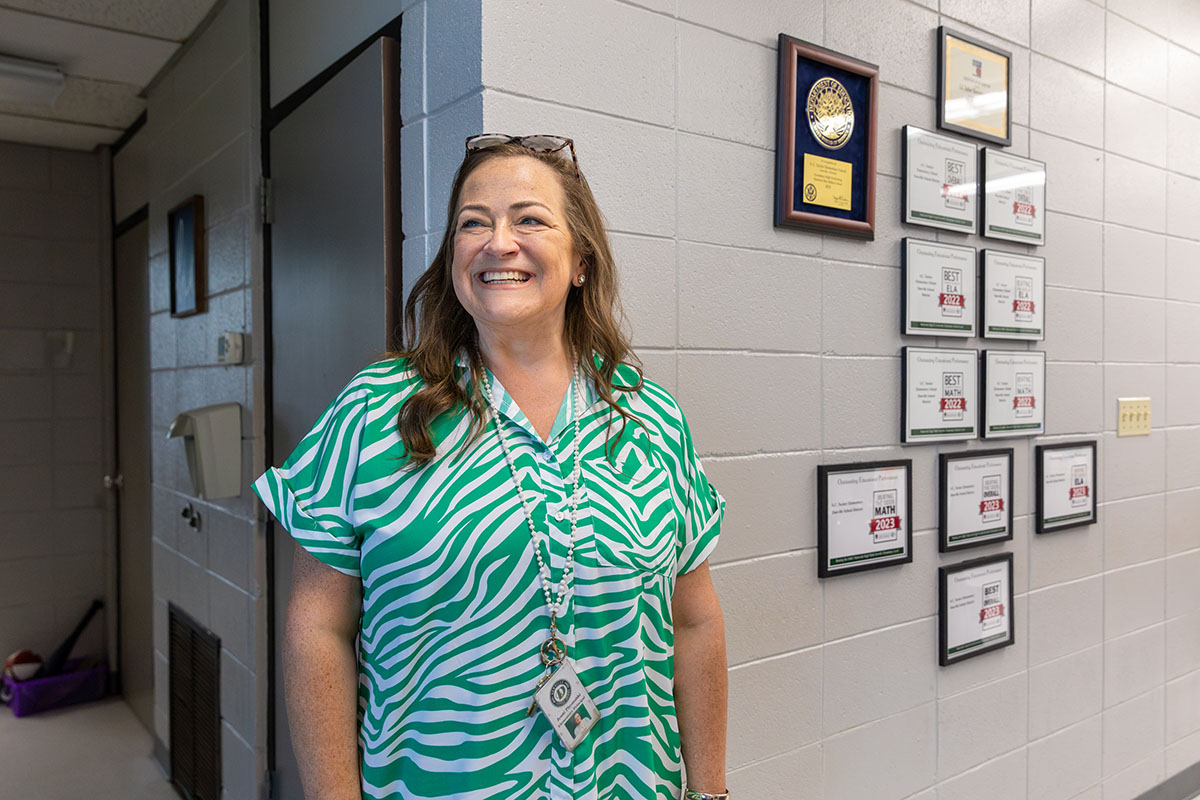
An Impact for Arkansas
John Pijanowski, professor of educational leadership and founder of the IMPACT Arkansas Principal Fellows Program, believes that schools can play a part in addressing just about any kind of problem a community is facing – from the economy and workforce to education and public health. School leadership, therefore, can often spark change by guiding a community’s educational institutions – and, by extension, the community itself – in a positive direction.
“I think schools sit at the center of a community and they’re the interface for all of those really dynamic synergies you’re trying to create with businesses, nonprofits, higher academic institutions and with local clinics and public health officials,” Pijanowski says.
Rural schools in Arkansas are particularly important in shaping their surrounding communities, and IMPACT at the University of Arkansas is ensuring that the leaders in these schools are fully equipped with the networks, education and skills they need for successful futures.
IMPACT is a “grow your own” program in the College of Education and Health Professions that recruits and trains a cohort of 20 participants annually – specifically those who will become principals, assistant principals, instructional coaches, and serve in other leadership positions. These participants come from high-poverty Arkansas schools and many that are rural or geographically isolated – both factors that often make it more difficult to attract talented school leaders.

Pijanowski explains, “Our intention from the beginning was to create an innovative and focused leadership program that would identify talent within these communities and focus their educational experiences in ways that would prepare them to be transformative leaders, wherever they might serve.”
 In its first 10 years, IMPACT recruited 168 aspiring school leaders across nine cohorts,
serving 145 high-poverty schools in 97 school districts and eight public charter schools.
In its first 10 years, IMPACT recruited 168 aspiring school leaders across nine cohorts,
serving 145 high-poverty schools in 97 school districts and eight public charter schools.
IMPACT is also a scholarship-based program and helps remove the financial barriers that many educators face when moving into leadership positions. Approximately 80% of the participants’ tuition and fees are covered while they’re enrolled in the program, thanks to generous funding from the Walton Family Foundation and other supporters, including the Windgate Foundation and the Carl B. and Florence E. King Foundation.
THE PRINCIPAL PRINCIPLE
John Bacon, executive director of IMPACT, is passionate about improving the quality of school leaders because he recognizes the value. As a former principal himself, he has hired other principals and knows that schools – and teachers – appreciate high-quality leadership.
He also explains that, while teachers will continue to be important to education and K-12 student success, school leaders can affect change on a wider scale.
“Improving the leadership at a school is going to have an astronomical impact on our ability to improve outcomes for all children because you’re not just affecting one set of kids in one classroom – you’re affecting a whole school,” he says.
Pijanowski, too, has noticed the unmistakable difference good leadership makes.
“As soon as you walk into the building of a school that is really clicking, you can see it immediately in the faces of the children and then the teachers,” he says. “That’s when you pick up on the vibe, and you can’t put a price on it.”
This “vibe” is what Pijanowski hopes to cultivate in IMPACT’s graduates.

After spending time on the faculty at Cornell University in New York and North Carolina State University, he decided to bring the best of what he had learned from both programs to the University of Arkansas.
“One of the first things I did – in fact, one of the main reasons I came here, is I thought there was a real opportunity in Arkansas to do something interesting and innovative,” he says. “At the heart of it was problems with trying to identify, educate and place leaders in high poverty school systems.”
Pijanowski shares an example from southeast Arkansas, where there were multiple position openings in contiguous districts, yet only one qualified applicant in each pool.
“When we dug deeper, we learned that it was one person who applied for all those jobs,” he says with incredulity. “So that really popped for me in the data as an example of just how hard it is in these communities to find a qualified principal.”
Pijanowski also notes that he’d seen others try to place people from outside these communities, which often resulted in failure.
“We found that, a lot of times, the systems of support, particularly in poor, rural school systems, started to fall apart pretty quickly because you are geographically isolated,” he says.
In contrast, IMPACT inspired a pipeline approach, where existing residents from the community could receive the education and training necessary to grow where they’ve already been planted.
FELLOWS AND FUTURE LEADERS
IMPACT’s participants both self-nominate and are recommended by their school districts. Once enrolled, they meet three to four times a year to get to know their own cohort better. The remainder of their work is done virtually, so they can continue to be engrossed in the needs and culture of their community. Along the way, they’re also involved in coaching, which often begins with enrollment and extends beyond their participation in the program. At the completion of the program, participants graduate with a master’s degree in educational leadership, and it’s a general expectation that they remain in their school district for two additional years. For graduates like Jenni Phomsithi, it’s an easy commitment.
 IMPACT participants are connected with coaching fellows from all over the state –
from Texarkana to Jonesboro and McGehee to Decatur.
IMPACT participants are connected with coaching fellows from all over the state –
from Texarkana to Jonesboro and McGehee to Decatur.

Phomsithi heard about the program during an Arkansas Leadership Academy Teacher Leadership Institute. A Danville resident since the fifth grade, she previously served the school district as a high school English teacher, instructional technology facilitator and grant writer and as secondary curriculum administrator and district federal programs director. She completed IMPACT and graduated from the U of A in 2021 and is now the principal of S.C. Tucker Elementary.
“I love it here,” she says. “I wouldn’t go anywhere else. Not only did I go to school here, but I taught in the high school and my kids go there too. It’s home.”
Similarly, Laura Starr-Phillips, a 2024 graduate of IMPACT, spent many years in the Helena-West Helena School District as a teacher and behavior interventionist before pursuing the IMPACT program. She’s now the assistant principal at J.F. Wahl Elementary in Helena.
“I decided to pursue this program because it was an incredible opportunity to fulfill my dream of becoming a principal,” she says. “Being an educator has always been my life’s dream, and I was confident that this dream would come true.”
Both Phomsithi and Starr-Phillips noted how rewarding it was to have coaches as part of the program, as well as the opportunity to engage with fellow members of their cohort.
Starr-Phillips says her coach was a “constant source of encouragement and motivation throughout my journey,” and Phomsithi says she enjoyed having an outside perspective about issues related to her school district. Starr-Phillips plans to stay involved with the program by mentoring and encouraging other educators because she believes it provides invaluable training for aspiring leaders.
SMALL SCHOOLS, BIG IMPACT
IMPACT certainly gets an A+ for its efforts – not only in developing school leaders but for the results seen by communities and schools as well.
In 2023 alone, eight IMPACT schools were recognized as Growth Award Schools (highest value-added growth in the state) and 16 IMPACT schools as Beating the Odds Schools (high poverty schools outperforming expectations) by the Office for Education Policy (OEP) at the U of A. Furthermore, 7 of the top 10 Arkansas school districts showing “Best Freshman Success” in a 2022 OEP report were IMPACT partner districts.
 More than 80% of schools led by IMPACT fellows achieved letter grades of A, B, or
C on recent report cards, far exceeding the 68% rate achieved by all Arkansas public
schools.
More than 80% of schools led by IMPACT fellows achieved letter grades of A, B, or
C on recent report cards, far exceeding the 68% rate achieved by all Arkansas public
schools.
Phomsithi loves that, because she is in a rural school, she can do big things to impart positive change.
“In every position I’ve had here, I’ve been able to make a bigger impact than maybe at a larger school,” she says. “You know everyone’s names and the stakeholders. When I enter data, I can tell you what grade level a lot of our students are on, because I follow them so closely. To be this rural and to have the demographics we do, we can still offer an education that rivals and beats that of schools across the nation.”

“Effective administration goes beyond managing tasks,” Starr-Phillips says. “It’s about inspiring and guiding others.”
As its name implies, graduates from IMPACT will play a part in making these changes possible.
“We’re building a strong workforce in these communities and they will be attractive for companies to stay in and employ people locally,” Pijanowski says. “We want to see the power of people loving where they work and students loving where they learn. We want them to feel safe, excited about their future and motivated. That’s what great school leaders do. If you can spread that feeling across the state of Arkansas, it’s going to affect the entire state.”
